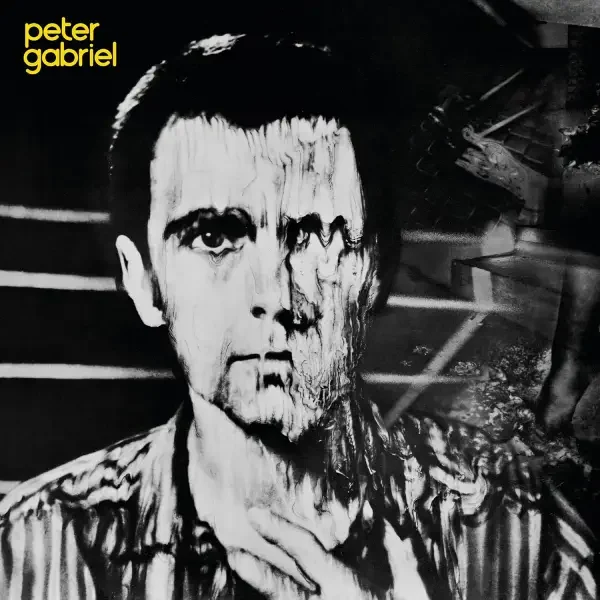Peter Gabriel
– Peter Gabriel (Melt)
Peter Gabriel had burned the Genesis robes, thrown them in the Thames, and danced around the smoke. This record—informally dubbed Melt for its cover art—isn’t prog, isn’t pop, isn’t post-anything. It’s nervous and raw and weird in all the right ways. Gabriel didn’t just break with his past—he disassembled the tools and rewired the circuits. What emerged is a record that feels like an X-ray of paranoia. Clinical, but strangely intimate.

The production’s a whole other beast. With Hugh Padgham and Steve Lillywhite turning knobs, Gabriel pulled the plug on cymbals and let the gated drums stomp like iron boots through a haunted factory. Phil Collins, recently unemployed from his marriage and soon from Genesis’ golden era, found a new calling here. The beats aren’t flashy; they’re apocalyptic. Synths don’t shimmer, they creak. Even when melodies surface, they feel like trespassers.
And then there’s Gabriel himself—moaning, whispering, snarling. He plays the cracked prophet, the secret agent, the man under the bed. Every word feels jagged, like it was etched with a broken bottle. But beneath the dread, there’s a pulse. A strange empathy. He’s not just reporting from the edge—he’s inviting you to look over with him. Melt isn’t content to entertain. It wants to disturb, and maybe wake you up.
Choice Tracks
Intruder
The opening track doesn’t so much begin as it creeps in. A lock clicks. A breath holds. Then those drums—Collins’ gated stomp—drag the listener through the keyhole. Gabriel’s vocal is hushed, menacing, like someone whispering behind the shower curtain. It’s not horror in the jump-scare sense. It’s the creeping suspicion that you left the door unlocked.
No Self Control
Gabriel in panic mode. This one pulses like a migraine with synths that stab rather than soothe. Kate Bush and Collins provide backup vocals that feel like ghosts caught in the wiring. It’s about obsession and the itch beneath the skin, but it never offers a cure—just the compulsion.
Games Without Frontiers
Catchy in the way a cracked nursery rhyme is. The song walks a fine line between satire and lament, with militarism and playground politics blurring into one. Bush’s eerie “jeux sans frontières” refrain adds a strange tenderness to Gabriel’s sneering tone. A hit single, somehow, despite sounding like a Cold War broadcast through a broken television.
Biko
The closer isn’t just a song—it’s a monument. A dirge for anti-apartheid martyr Steve Biko, it builds slowly, inexorably, with tribal drums and call-and-response vocals that resist fading out. Gabriel doesn’t rant; he bears witness. It’s political, but more than that, it’s human. A cry that lingers long after the needle lifts.
Family Snapshot
Inspired by the memoir of an assassin, this one might be Gabriel’s most quietly devastating moment. It starts with a soft piano and ends in anguish. There’s a twisted sort of sympathy here—not for the act, but for the broken boy behind the crosshairs. In lesser hands it would collapse under its own weight. Here, it hits like truth.
This record doesn’t want to be liked. It wants to stick to your ribs, to whisper weird things in your sleep. And it does. Melt is Gabriel’s broken mirror—and if you’re brave enough to stare, you’ll see more than just his reflection.

